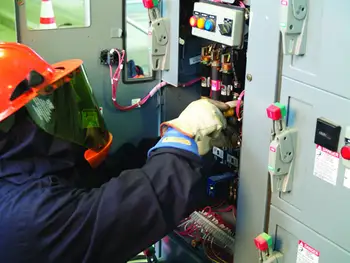Canadian Electrical Code Training is intended to do a lot more than instruct about what changes have taken place since the last time Canada issued a national Electrical Code. This 12-hour live online, instructor-led course, covers major sections of the 2024 CE Code and recent changes.
We are producing a series of courses across Canada by one of Canada's leading experts on the 2024 Edition of the Canadian Electrical Code to help electrical professionals on the effective application through an improved understanding of the intent of the rules. Also, our course will instruct electrical professionals on how to access and navigate through the Canadian Electrical Code Part 1 in a cost-efficient manner.
The 2021 Canadian Electrical Code Book is the basis for all provincial and territorial electrical codes across Canada. Most provinces adopt and meet the rules set out by the Code, without changes, while other provinces add their own amendments. You need to know both the national and specific provincial code differences. This course deals with a wide range of important subjects, including energy management systems, electrical vehicle charging stations, heating devices and controls, shower stalls,
We can create a unique customized course, designed for all levels of electrical professionals by one of Canada's leading experts in industrial, commercial, institutional and residential electrical installations, as well as the business of conducting electrical inspections.
Our 2024 Canadian Electrical Code Training classes not only offers updates on the latest code changes, but we also include a way to understand what the rules are and how to access each area of the code with ease. Some people spend endless time searching for the rules that they need. This education program will teach what you need to know, quickly and accurately. Our instructor will demonstrate how to find the answers you need in a few easy steps. You will find the answers easily and correctly with our training system.
You won't want to miss this learning opportunity!!
It's a Proven Fact:
Electrical Engineering, Design, Maintenance and Construction professionals who understand the most current Electrical Code standards will:
- Work more safely and provide a greater degree of electrical protection for electrical systems
- Work more productively. Make more money, save their clients' money
- Prevent system incompatibilities from holding up a job
- Experience a higher rate of passing electrical inspection
This interactive 2-Day Canadian Electrical Code Training Course will instruct industrial, commercial and institutional electrical professionals and electrical professionals on:
1. Understanding the most recent changes to the 2024 Canadian Electrical Code and individual provincial ammendments.
2. Code Interpretation: How to most effectively interpret the Canadian Electrical Code in order to properly comply.
3. How to navigate and access the Code Rules accurately and time-effectively.
This course is designed to be an interactive, problem-solving, learning environment for delegates of all disciplines. Instructor-led calculations will determine minimum conductor sizes and maximum overcurrent ampacities for various loads as well as maximum overload settings for AC motors. Participants are encouraged to bring a calculator to the seminar in order to actively participate in the exercises.
The positive outcome of this training is to improve the quality of installations and to pass electrical inspection with fewer deficiencies. It means working more efficiently and productively, saving time, energy, and money, which is a great credit to everyone working in the industry.
Specific changes to the 2024 edition of Canada's National Electrical Code include:
- Section 64, Renewable energy systems, energy production systems, and energy storage systems, features a new subsection governing the installation of energy storage systems and rules for functionally-grounded renewable energy systems.
- Section 26, Installation of electrical equipment, includes a new requirement for ground fault circuit interrupter protection for all 15 A and 20 A receptacles located outdoors within 2.5 m of grade, among other changes.
- Section 22, Locations in which corrosive liquids, vapours, or excessive moisture are likely to be present, now contains a new Subsection for farm buildings housing livestock, as well as revised Rules for equipment in Category 1 and 2 locations.
- The definition for “Voltage — Low voltage” was revised.
- Clarification was provided on impedance grounded system operation under fault condition in Section 10, Grounding and bonding.
- New requirements were added for electrical equipment installed near roof decking systems to Section 12, Wiring methods.
- Load calculations and equipment layout for recreational vehicle lots were updated in Section 72, Mobile home and recreational vehicle parks.
- Table 19, Conditions of use for insulated conductors and cables other than flexible cords, portable power cables, and equipment wires, was completely reorganized, simplified, and shortened.
- Annexes A.1, CSA Canadian Electrical Code, Part II safety standards for electrical equipment and A.2, Other Canadian safety standards for electrical equipment, of Appendix A.



